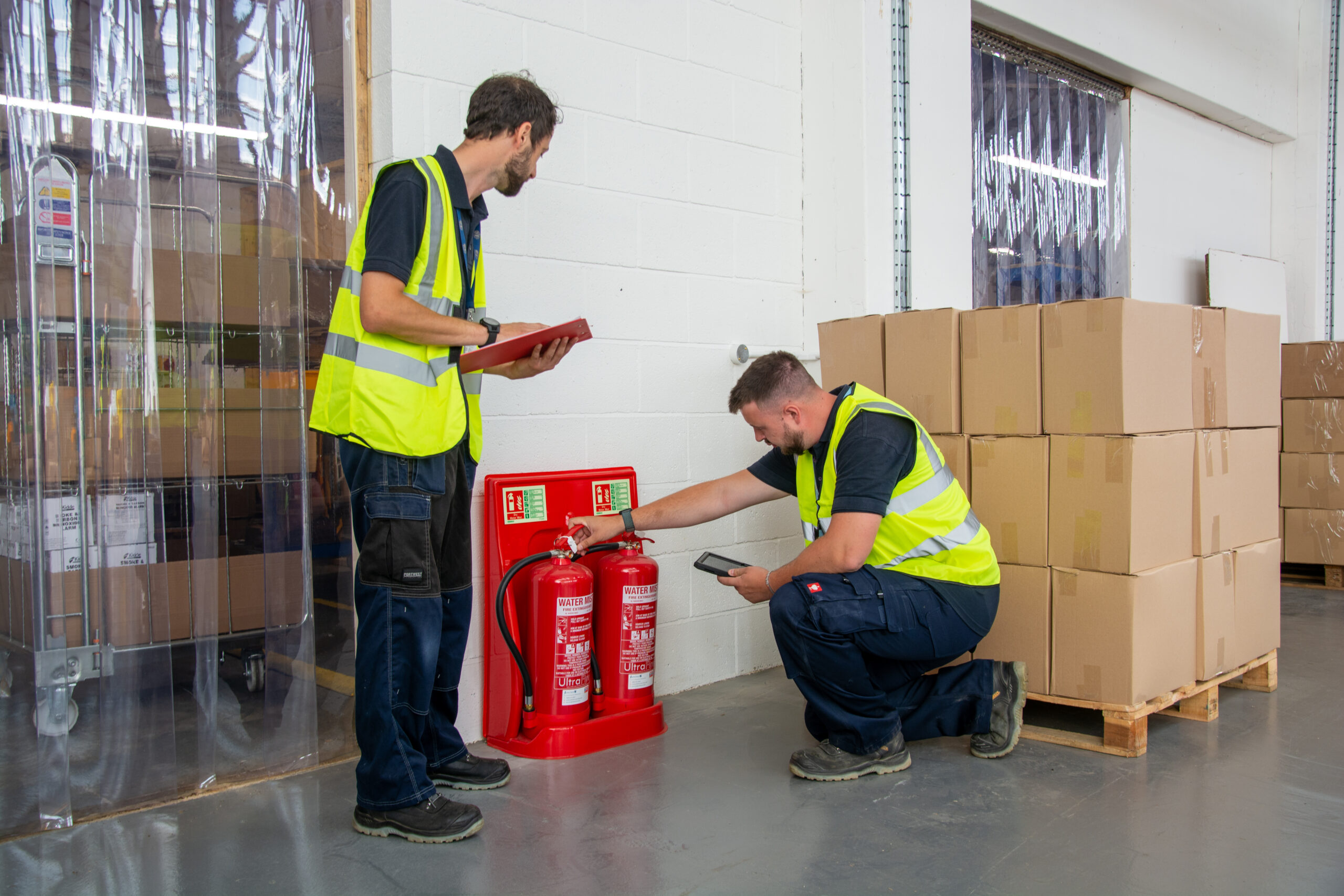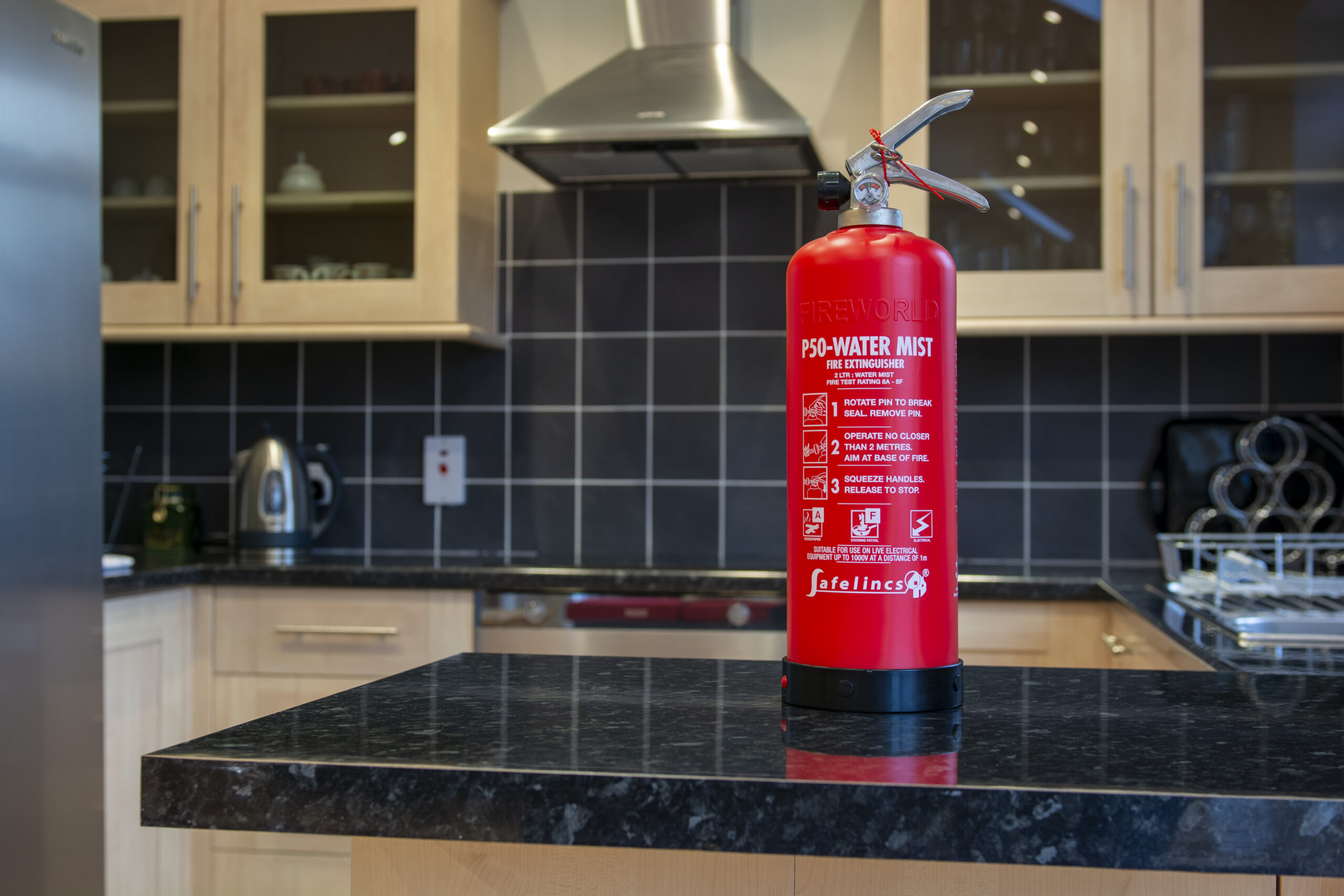Friday 12th August 2011
Now that the rioting seems to have come to an end it is worth considering how to be prepared for similar occurrences in the future. Most of the physical damage, excluding the massive damage to lives and communities, was caused by arson attacks and many people were put at risk by being trapped in their houses by fire.
There are a few precautions one can take to avoid being trapped by fire and to reduce the risk from arson.
Make arson attacks more difficult
It is easy for rioters to pour petrol through a letterbox and to throw a 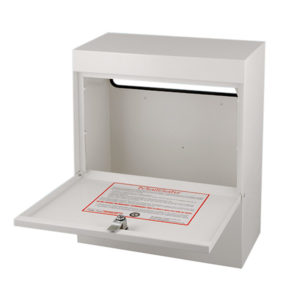 match after it. The impact is devastating. The fire races through the house and the main exit is blocked by fire. However, you can protect yourself by installing an anti-arson letterbox. These fire protection bags sit behind the letter slot and normally just catch your mail. However, they also will contain any flammable liquid poured through the letter opening and automatically extinguish any fire in the letterbox with a small automatic extinguisher or intumescent materials built into the anti-arson letterbox.
match after it. The impact is devastating. The fire races through the house and the main exit is blocked by fire. However, you can protect yourself by installing an anti-arson letterbox. These fire protection bags sit behind the letter slot and normally just catch your mail. However, they also will contain any flammable liquid poured through the letter opening and automatically extinguish any fire in the letterbox with a small automatic extinguisher or intumescent materials built into the anti-arson letterbox.
Stop your soft furnishing catching fire
You can reduce the flammability of curtains, carpets and soft furnishing in entrance areas by treating them with fire retardant spray. These sprays make fabrics less flammable and thus reduce the impact of a fire bomb thrown into a building.
Protect your most valuable documents from fire
Place your most valuable and personal items in a fireproof box. These
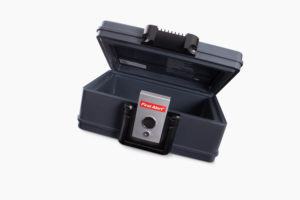
fireproof boxes are ideal for valuable
photos, passports, certificates etc. Special fireproof boxes for electronic data protection will protect your familiy videos and electronically stored data/photos. Some of the boxes are also water tight, which is important in case the fire brigade have to douse the flames with water and foam.
Ensure you have a second route of escape
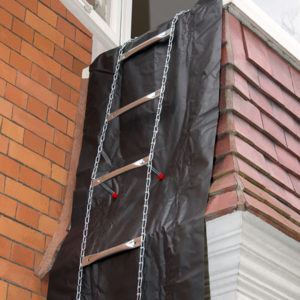 Do you have a second escape route if the hallway is in flames? Make sure you can open upstairs windows to escape. If they do not open, keep a hammer or a dedicated emergency escape hammer near the windows. If the fire brigade cannot easily reach an upstairs window, consider a fire escape ladder which can be hooked over a window sill in an emergency.
Do you have a second escape route if the hallway is in flames? Make sure you can open upstairs windows to escape. If they do not open, keep a hammer or a dedicated emergency escape hammer near the windows. If the fire brigade cannot easily reach an upstairs window, consider a fire escape ladder which can be hooked over a window sill in an emergency.
Don’t suffocate from the smoke
Smoke from house fires is extremely toxic. A few breaths will overwhelm you and render you unconscious. If the house is filled with smoke, crawl along the floor towards the nearest exit. Wrap a wet cloth over your face if you have to run through smoke or fire, however, you must not breathe in the smoke due to the extreme tocicity! Consider having a fire escape hood in the house. These hoods cover your head and filter the fumes of the fire. This gives you valuable time to escape through smoke.
Make sure you can extinguish small fires yourself
During the riot the fire brigades were stretched by the number of fires. As a result their response time will not have
been as fast as usual. Make sure you can tackle small fires yourself by having buckets of water at the ready or equip yourself with fire extinguishers
Make sure you can extinguish a person on fire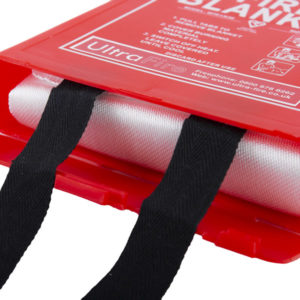
Keep a non-flammable blanket or large fire blanket at the ready to wrap around a person or roll the person on the floor to extinguish the flames. Have a bucket of water placed in a suitable place or ensure that you have a water fire extinguisher.
Fire Drill
Ensure that you know how you will escape from your home if a fire blocked the main exit. If you have children talk to them in a calm manner about what to do if there is a fire. If the child is particularly clingy to one parent, get that parent to lead the way out of the building. The child will be more willing to leave the building that way. 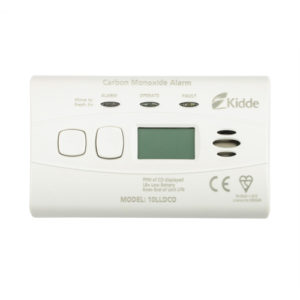
Ensure that you have working smoke alarms fitted to alert you to a fire, and a carbon monoxide alarm in every room where you burn solid fuel, such as a gas boiler, gas or open fire, gas cooker. Make sure you check that they are working on a regular basis and that they are never left without a battery in them.
For help and advice call 0800 612 6537 or email support@safelincs.co.uk

